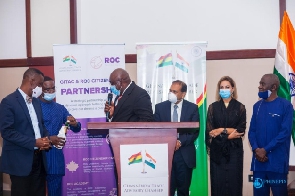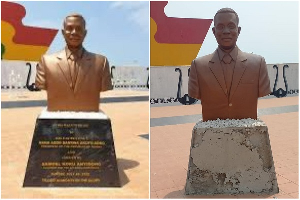Dr Dominic Oduro-Antwi, President, Ghana-India Trade Advisory Chamber (GITAC), says the Chamber has put in place a series of programmes to create opportunities for the youth to leverage and harness their potential.
He said the Chamber, which was trade and investments inclined, had shifted the focus this year to empowering the youth in agribusiness, education, and ICT in fulfilment of its five years anniversary.
Dr Oduro-Antwi made this known at the launch of the Chamber’s fifth anniversary celebration in Accra.
He said: “GITAC will provide scholarships to students including exchange programmes and give support to innovative ideas from the youth. They will also benefit from programmes like the health tourism, technological fair and musical festival.”
The events which would be year-round began with the media launch and between February 22 and 24 there would be an educational fair where about 20 universities from India would be in attendance to share knowledge with the Ghanaian counterparts.
In March, there would be another educational fair where Ghanaian youth and students would apply for Indian scholarships with the requisite qualifications.
Similarly, a Global African Trade Advisory Chamber would be launched in Dubai and in April, the GITAC would engage the media to understand and propagate the Chamber’s events.
Whilst in May there would be the Global Annual Event, there would also be health tourism where technologies used in building clinics in just three days would be exhibited in June with a technological fair taking place in July.
Mr Nazeer A. Khan, a Member of GITAC, said Indian members of the Chamber had investments, including hospitals and polyclinics in Ghana.
He said: “We are ready to help the students with scholarships in India. The education opportunities there are very cheap.”
Reverend Edward Randolph Koranteng, Board Chairman, GITAC, said the events were geared towards developing the human capital that would serve as a business product to be sold and exported to yield profit for the economy.
He said the world was now sustained by the knowledge economy, adding that “the knowledge economy addresses how education and knowledge can serve as a productive asset.”
“This aspect of the economy relies greatly on capabilities instead of natural resources or physical contributions in the knowledge economy,” he said.
Business News of Monday, 13 February 2023
Source: GNA

















